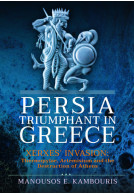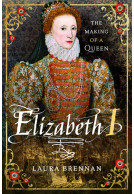Roman Legends Brought to Life (Hardback)
Imprint: Pen & Sword History
Pages: 232
Illustrations: Integrated mono
ISBN: 9781399098526
Published: 9th August 2022
(click here for international delivery rates)
Need a currency converter? Check XE.com for live rates
| Other formats available - Buy the Hardback and get the eBook for £1.99! | Price |
|---|---|
| Roman Legends Brought to Life ePub (39.7 MB) Add to Basket | £6.99 |
The legends of early Rome are among the most memorable of any in the world. They are also highly instructive. They taught generations of Romans about duty and obedience. Duty and obedience might not seem to amount to much these days, but it was precisely these virtues that made Rome great. The legends are not, however, merely self-congratulatory and they are rarely simple exercises in nationalist propaganda. On the contrary, many reveal their ancestors’ dark side, which they expose unflinchingly.
As in the case of Greek mythology, there is no authorised version of any Roman legend. The legends survived because they reminded the Romans who they were, what modest beginnings they came from, how on many occasions their city nearly imploded, and what type of men and women shaped their story.
Defeat, loss, failure. That’s where this story – the story of the boldest, most enduring, and most successful political experiment in human history – begins. It’s the story of how a band of refugees escaped from the ruins of a burning city and came to establish themselves hundreds of miles to the west in the land of Hesperia, the Western Land, the land where the sun declines, aka Italia. It’s the story of a people who by intermingling, compromise and sheer doggedness came to dominate first their region, then the whole of peninsula Italy, and finally the entire Mediterranean and beyond.
Review as featured in
Journal of American Folklore
As reviewed by the Journal of American Folklore 136.542 (Fall 2023).
Martin M Winkler
A work of meticulous historical scholarship that reads with all the inherent reader engagement of an extended saga, "Roman Legends Brought to Life" is a as informative as it is fascinating.
Midwest Book Review
Informatively enhanced for the reader beginning with the inclusion of 'A Mostly Somewhat Putative Chronology', and concluding with a two page Further Reading bibliography organized into a Modern Studies list and an Ancient Sources in Translation list, "Roman Legends Brought to Life" is an exceptional and recommended addition to personal, scholarly, and community library Roman History/Mythology collection.
This book explores the world of Roman Legends, all those great roman gods and leaders we all learn about at school or through life. You have all the great gods and stories from the Trojan Horse right through to the Ides of March and everything in between. What was really good about this book was the comprehensive number of stories, but also the way they were written, it seemed to me they were written in layman’s terms. This not only made them far easier to understand, but with the excellent writing, it was a breeze to read... But overall it was a really good read and one I certainly enjoyed and I really enjoyed the cover design and it stands out nicely on my bookcase.
The History Fella
Read the full review here
Rating: 5 out of 5 stars
NetGalley, Lional Jones
An excellent book covering Roman myths and pas history, I thoroughly recommend this book to everyone who likes Roman history.
I think the concept of bringing they myths of Rome closer to our days by using less grandiose or archaic language and more common place, up to date terms is a great idea and certainly good for younger audiences put off by struggling through older, direct translations of these stories. I would recommend this book to anyone looking for background in these myths and hoping to find a book that can help them to connect more closely to the material.
NetGalley, Anthony Masi
It was an entertaining and compelling read. Even if I learned about the Roman legends since I was a child I appreciated the different take and learned something new.
NetGalley, Anna Maria Giacomasso
Recommended.
A fascinating account of how Romans viewed themselves and their country through the lens of the legends they crafted during their very long existence where they went from village to world superpower. Unlike the Greeks, that gave the gods preferential roles in their mythology, Rome was more people-centric in theirs, crafting legends around "men and women who were instrumental in giving their city its distinctive character in the first centuries of its existence," as Garland says.
NetGalley, Alya G.
In the course of 22 separate chapters, Robert Garland elaborates on these legends, how they came to be, why they existed, and how they shaped Roman worldview. Starting with Aeneas from the nebulous founding times until the Ides of March that ushered the formal end of the Republic, he includes all the important legends without discriminating between the historical ones, the semi-historical ones, and the wholly invented ones, focusing instead of the Romans' conception of them and their role in explaining their society in all its facets. As he contends, their legends are important to them, and to us as history readers and learners, because they preserve their memories in some shape and also remind of who they think they are as a people.
And Garland retells these legends in a readable and amenable, conversationally and adapted to modern linguistic expressions, even downright humorous at times ("Let's not make any bones about it. Rome's ancestors, the Trojans, were losers." Ha! Have to give it to a superpower with a origins story that's not exactly flattering), which will be appreciated by those in the readership that aren't not well-versed in Roman history and mythology. Even children could read this book, so long as they aren't too young because Rome wasn't exactly Mr Rogers-friendly when they got in the mood to tell all and sundry stories about themselves. This is the city that took its name from a man that was a product of rape, after all, so decidedly not for all audiences unless heavily sanitised, which this book isn't.
About Robert Garland
Robert Garland was the Roy D. and Margaret B. Wooster Professor of the Classics at Colgate University, where he taught for 30 years. He attended drama school before completing his Ph.D. at University College London. He has recorded five courses for The Great Courses and written two videos for TED Animation. Robert has published 13 academic books on Greek and Roman history, and has recently finished a comic historical novel. He considers his most important contribution to the discipline to have been to identify categories of people who have been generally overlooked or marginalised in conventional accounts of ancient history, such as the disabled and refugees. He is the author of How To Survive in Ancient Greece and Greek Mythology: Gods and Heroes Brought to Life, also published by Pen & Sword. He is a practising artist.

















